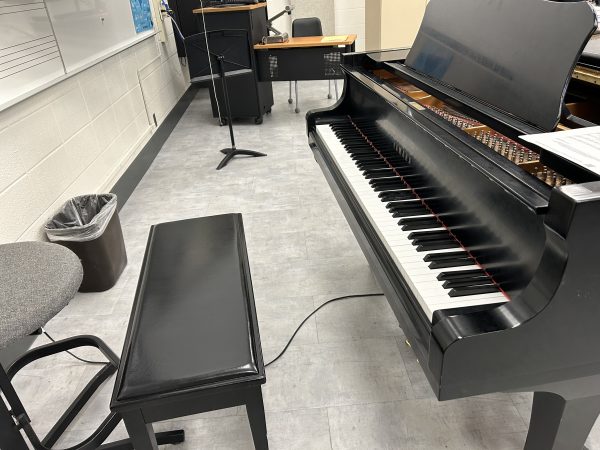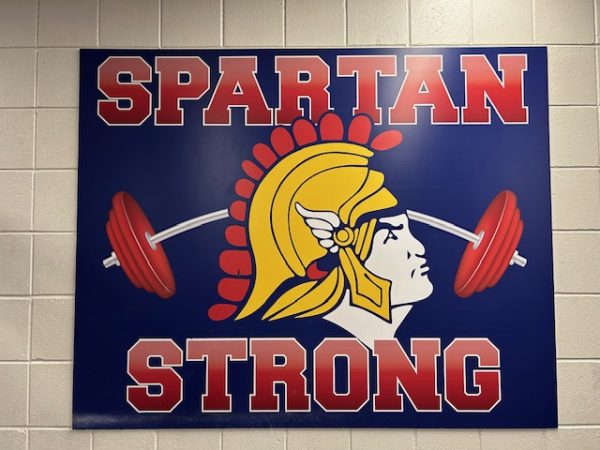Thrift shopping makes a comeback
Resale shopping has become popular among Orono students in the last few years. Students are shopping at the local Goodwill’s in Minnetonka and Plymouth. Some may be driving towards Minneapolis to reach stores such as Ragstock, The Salvation Army, Arc, Buffalo Exchange, Plato’s Closet and many more.
Second-hand retail has become a multi-billion dollar industry. There are 25,000 thrift and not-for-profit resale shops across the country, according to The Association of Resale Professionals (NARTS). In the past, people have turned down resale stores believing the clothes were dirty or carried diseases, according to Champanile. However, this is not the case anymore with the growing amount of people purchasing vintage clothing.
More people are becoming drawn to the idea of finding a hidden gem within a resale store and only needing to spend a small price. Thrift shopping has attracted people from every kind of financial background, according to Champanile. The money saved can go towards travelling, entertainment, college loans, retirement accounts, family activities and much more, according to NARTS.
“I enjoy shopping at thrift stores for the biggest difference, the price. Getting clothes I like and for way cheaper than a retail store is awesome,” sophomore Calvin Carrison said.
People over 65 and in between 18-24 years old are more likely to shop at resale shops. These two groups are known to be more motivated by savings and environmental consciousness, according to Forbes.
“I like thrift stores because I am a huge fan of vintage Nike and Adidas gear, and you can find more of that and many more unique items for much cheaper,” senior Jack Randolph said.
Around 16-18 percent of Americans will shop at a thrift store in a year. Only 11.4 percent will shop at an outlet mall and 19.6 percent will shop in apparel stores and major department stores, according to America’s Research Group.
“Thrift shopping is great because you never know what you’ll end up finding. A lot of the clothes you find no one else has, and everything is really cheap so I can buy a lot at a time,” senior Ellie Burr said.
Thrift stores allows buyers to develop their own niche and unique style. Many people are interested in the idea of carrying on the story behind the clothing from the previous owner, according to Champanile. This is known as feeling nostalgic. People become more attached to these products believing they are more special, irreplaceable and fashionable, according to a study done by Iowa State University.
A popular resale shop, Goodwill, has expanded into 2,700 stores in 15 countries, according to Jim Gibbons, CEO of Goodwill. They have generated $5.37 billion dollars in retail sales, according to NARTS. These sales are not limited to only clothing. There is a variety of electronic devices, furniture, kitchenware, books, music and other miscellaneous items.
“It is a bargain and definitely worth a couple visits to the thrift stores even if you only get a few things,” Carrison said.
From the television shows, Thrift Wars and Thrift Hunters, people are inspired to buy from consignment shops so they can create a DIY project or to find the missing clothing piece that goes with that one outfit, according to Campanile.
“I go thrift shopping because you can find a lot of unique clothes, and I hate fast fashion. This way I am recycling clothes that are different from ones you could find in a mall,” senior Ryan Paul said.
Some resale shops work with charities to benefit their local community. The Salvation Army formed as a charitable organization. All of the sales made go towards funding adult rehabilitation centers, according to The Salvation Army. Around $0.2 billion of the profits are exported to outside countries, according to Iowa State University.
“When I thrift I usually go to Buffalo Exchange, Goodwill or Arc,” Burr said.
Thrift stores are eco-friendly, helping stop more clothing from piling up in landfills, according to Campanile. A local Minneapolis thrift store called Buffalo Exchange is bagless. Their mission is to buy, sell and trade recycled clothing without giving a bag to their customers, according to Buffalo Exchange.

Hi! My name is Tori Everson and I am a senior at Orono High School. I am excited to take on my role as news editor for this year. I have been in journalism...










